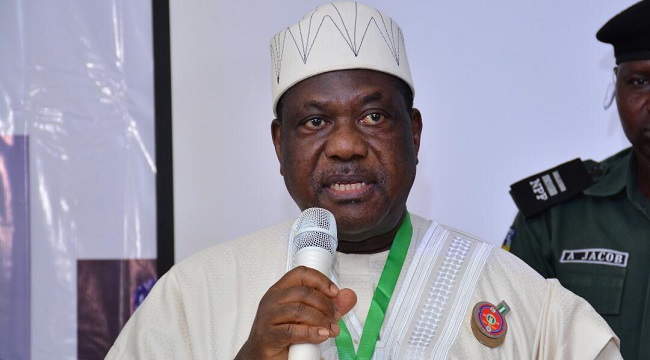As the nationwide strike by the Organised Labour over a new minimum wage paralyzes economic activities in Nigeria, the Federal Government has stated that President Bola Tinubu is committed to implementing a national minimum wage above ₦60,000.
The announcement was made by the Secretary to the Government of the Federation, George Akume, following a marathon meeting with labour leaders in Abuja late Monday.
He said the President is “committed to a national minimum wage that is higher than N60,000”.
“The tripartite committee is to meet every day for the next one week with a view to arriving at an agreeable national minimum wage,” Akume said, adding that the Organised Labour, in deference to the high esteem of the President, agreed to convene a meeting of its organs immediately to consider the commitment of the President.
The meeting included Joe Ajaero, President of the Nigeria Labour Congress (NLC), and Festus Osifo, President of the Trade Union Congress (TUC). Representing the government were George Akume, Secretary to the Government of the Federation; Mohammed Idris Malagi, Minister of Information; and Nkiruka Onyejeocha, Minister of Labour, among others.
The indefinite strike, which began on Monday, has affected businesses, airports, universities, hospitals, and power supply as Labour pushes for a new minimum wage. Both the NLC and TUC argue that the current minimum wage of ₦30,000 is insufficient for the average Nigerian worker, noting that many governors are not even paying this amount. The current wage expired in April 2024, five years after the Minimum Wage Act of 2019 was signed by former President Muhammadu Buhari. The Act mandates a review every five years to address contemporary economic demands.
Labour set a May 31 deadline for the Federal Government to establish a new minimum wage. When the deadline passed without an agreement, workers’ unions declared a nationwide strike beginning on June 3, 2024, due to the government’s inability to finalize a new wage and reverse the recent electricity tariff hike.
During the failed negotiations, Labour rejected three government offers, the latest being ₦60,000. The TUC and NLC withdrew from talks, insisting on a new minimum wage of ₦494,000.

